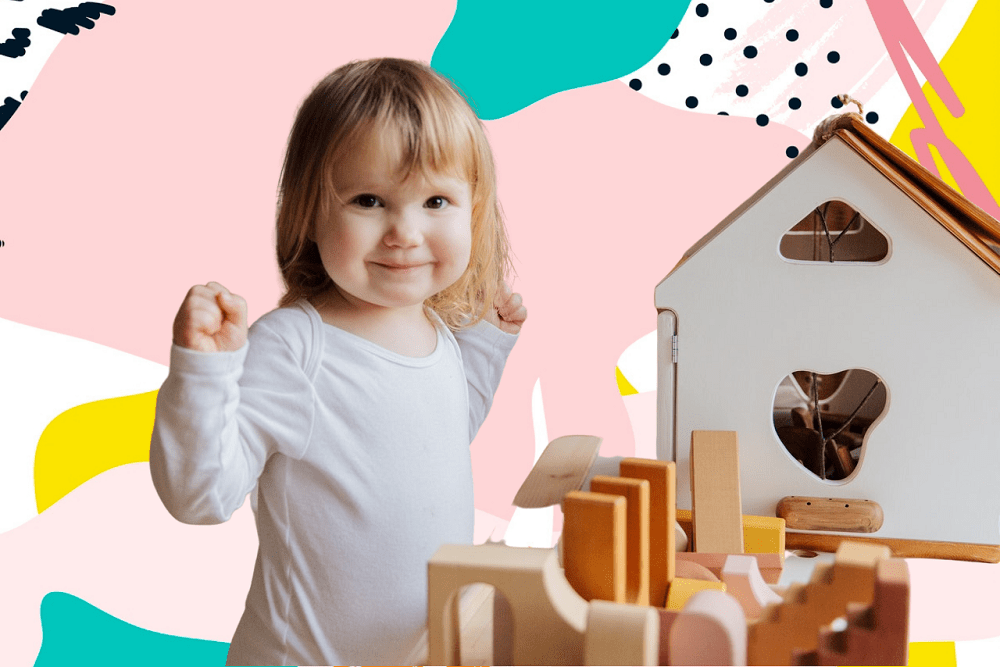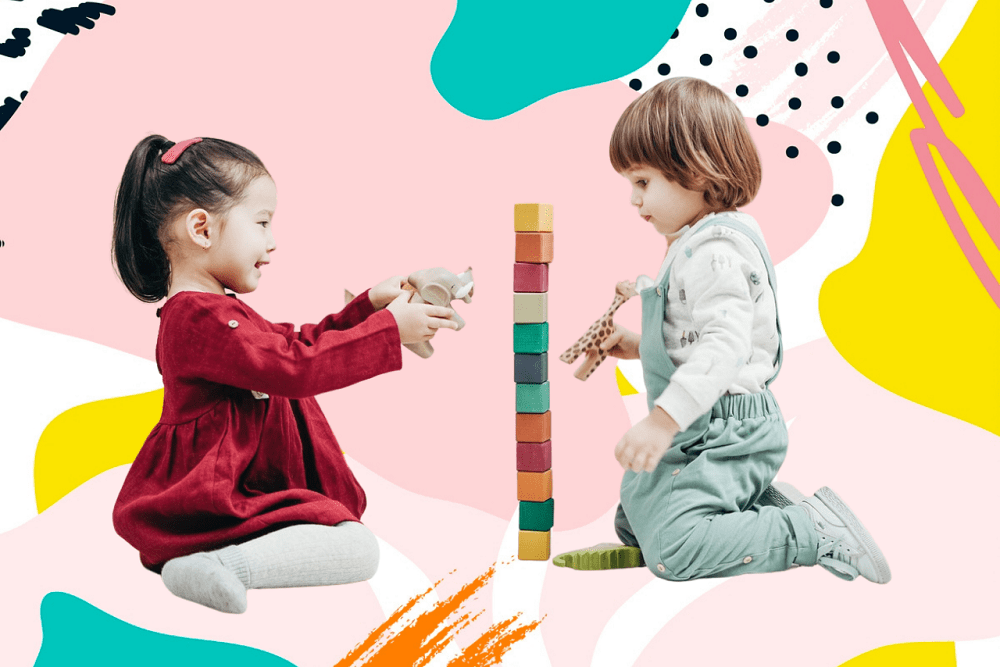Toddlers and young children are the most natural self-learners; in fact, studies show that between the ages of 4 and 12, the strongest learning effect was achieved, with information and skills acquisition in overdrive from around the ages of two.
It seems as though toddlers are particularly inquisitive. They want to know how things work, and they will take apart anything to figure it out (as we’re sure you’ve noticed by the state of your home some days!).
As Friendship Circle explains, “Cognitive development is characterized by the way a child learns, acquires knowledge and interacts with [their] surrounding environment”. Unsurprisingly, then, there are ways you can help your toddler learn more efficiently by engaging with them in their learning process. Here are some ways to help support your toddler’s growth and cognitive development.
Learning Through Play
According to the good guys at UK children’s charity Family Lives, ‘’Young children can develop many skills through the power of play. They may develop their language skills, emotions, creativity and social skills. Play helps to nurture imagination and give a child a sense of adventure. Through this, they can learn essential skills such as problem solving, working with others, sharing and much more’’.
Your child is constantly learning through playing. As such, do try to incorporate educational toys and activities into their lives whenever you can. Not only will this encourage your toddler to learn, but they will enjoy themselves at the same time. On some level, all kids’ toys are educational, however, some are especially great for this age, including wooden peg puzzles and building blocks, as well as sensory toys, which encourage an inquisitive and engaged playtime.
While it’s important to play games that encourage them to problem solve, i’s also important to let toddlers enjoy some unstructured play. Unstructured play helps children foster inquisitiveness, curiosity and boundary setting. Remember, neither structured nor unstructured play is more or less important than the other type of play – they both help a child to develop all their necessary life skills in different ways.
Read: How to make a playground in your back garden

Take Them Into Nature
Studies have shown that those who are exposed to nature from an early age tend to be more compassionate towards others as they grow older, as well as being more compassionate towards themselves. What’s more, there are proven links between outdoor activity and brain development in kids.
Because toddlers learn through playing outdoors, exposing them to nature can bring multitudes of benefits including improved problem-solving skills, better concentration, physical fitness, and creativity. Being outdoors allows for plenty of opportunities for exploration and discovery.
Consider planting with them to further help their cognitive development. Growing a plant is a wonderful way to teach your child to be nature loving. What’s more, watering and taking care of a plant fosters an understanding of the seasons and the passing of time, as well as a respect for nature that is so vital growing up. The only downside? A few muddy knees from time to time!
Read: 5 ways to encourage children to be environmentally friendly
Problem Solving
Provide plenty of opportunities for your child to problem-solve (like those building blocks and puzzles we mentioned earlier) by offering them an array of objects that either do not belong together or require some sort of assembly.
These problem-solving games can be played whilst other daily activities are occurring. A useful one while you’re cooking dinner is to get them to match various-sized lids to their accompanying pots. Point out what goes where during playtime so that they start seeing patterns in how everything works together.
Many child development experts recommend that, generally, you shouldn’t try to rescue your child every time they struggle with something new (e.g., giving up when trying to put blocks together). Help them by showing what they should do, but ultimately let it be their decision whether or not they will try again for themselves.
Exploring New Things
Exploring new things also means teaching them new activities, and cooking with your little one is a particularly great activity for you to share, as it teaches so many skills. Planning, preparing and cooking family meals together can be a bonding experience for parents and children alike. Moreover, it can also nurture an appreciation of healthy eating, a better understanding of ingredients and teach the little ones some life skills, too. And hey, if there’s something delicious to enjoy at the end of it, then everyone’s a winner!
Read: 7 IDEAL ways to have fun cooking with kids
Respect Their Time
Although human contact is important for children, allow them at least an hour each day to relax independently throughout the house. This will help them learn how to entertain themselves, as well as build their self-confidence. Sure, a little supervision is needed, but building independence in your child should start at a young age, at least tentatively.

Having Company
Have your toddler spend time with other children their age, as this is also very important for their development. If you want to get them out of the house, try a community centre where they can interact with others in a safe environment while you sit back and observe how they behave around one another.
Children’s parks or birthday parties are also great for practicing human interaction. If you have a child older than your toddler, encourage him to play with them whenever possible. This will allow them to work together on new tasks and help your child build his social skills.
Delayed Gratification
Toddlers may often throw tantrums when they face obstacles that could be easily overcome with patience and time, so make sure you teach them the virtues of patience and of being able to delay gratification. If you anticipate a meltdown occurring, distract them by offering an alternative play activity such as coloring or playing with blocks to help lessen the tension. Praise your child when they exhibit patience and willingness to wait for what they want (rather than throwing a tantrum).
Love & Support
There is a lot of research that shows “the powerful role of loving nurture in the emotional, social and cognitive development of children is powerful”.
As Medium explains “A child develops a healthy sense of themselves in the world through the intimate and interactive relationship with their mothers”.
Indeed, how we interact with the child can be critical for their healthy development, and showing love and support is the single best way to encourage your toddler to grow into a fine young person.





